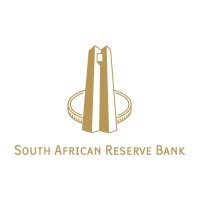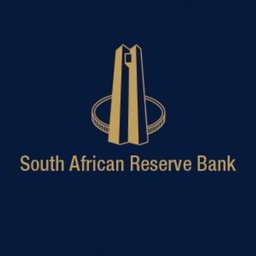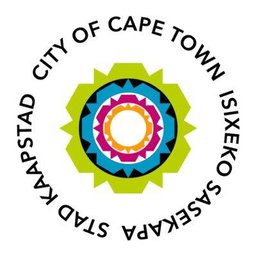Brief description
The main purpose of this position is to help create and implement frameworks for monitoring systemic risks and conducting stress tests to ensure the robustness and stability of the financial system. The role involves advising policymakers on emerging financial risks and vulnerabilities and assessing the soundness of financial institutions under various stress scenarios.
Detailed description
The successful candidate will be responsible for the following key performance areas:
- Lead both quantitative and qualitative systemic risk assessments and present findings to policymakers.
- Analyse and synthesise data and information from a variety of sources to identify trends, themes and patterns; draft key findings, and present recommendations that are financial stability relevant, impactful and implementable to both internal and external stakeholders.
- Recognise, interpret and report on developments in the domestic and international financial sector and/or financial markets that may have actual/potential systemic impacts on the financial system.
- Develop the scope, research and compile high-quality, concise and clear reports and presentations on the findings which have clear implications for policy makers on the stability of the domestic financial system.
- Conduct research using established methodological standards and techniques to inform the assumptions and relationships that underpin economic and other models.
- Build econometric models, run short-term simulation exercises, and analyse and explain model results.
- Develop and implement top-down and bottom-up stress testing frameworks, including methodologies, processes and models.
- Stay abreast of methodological developments for common scenario stress testing, analyse how these changes impact current methodologies and propose/change current methodologies based on identified changes.
- Support the execution and reporting of stress testing exercises in the financial system to provide advice to policymakers.
- Review sections of work produced by team members, and verify and validate that the specific deliverables have been completed in accordance with departmental quality assurance standards.
- Support the skills development of junior specialists by providing guidance on the subject matter within your own scope of work.
- Contribute to and support other strategic projects/objectives as required.
Job requirements
To be considered for this position, candidates must be in possession of:
- a minimum of an Honours degree in Economics, Econometrics, Finance, Statistics, Investment Management or an equivalent qualification; and
- a minimum of five years’ relevant job-related experience in macroeconomics, econometrics, finance and/or quantitative analysis of systemic risk in the financial sector.
The following would be an advantage:
- proven experience in financial regulation;
- a proven research record, including publications in accredited journals; and
- a master’s degree in Economics or a related field.
Additional requirements include:
- understand stress testing in the banking/insurance sectors or other financial sectors;
- knowledge of banking and non-banking regulatory frameworks and international standards;
- sound knowledge of economic and finanical theories, research methodologies as well as macroprudential policies;
- experience in macroeconomic and/or microeconomic modelling;
- experience in data analytics and working with associated software packages;
- ability to manage time, work independently and prioritise deadlines of multiple projects and ad hoc demands;
- proven facilitation and presentation skills;
- strives to and achieves successful outcomes in an unstructured work environment;
- ability to exercise and apply good judgement in decision-making considering available facts, sources of information and alternatives in reasonable time.
- excellent interpersonal, verbal and written communication skills; and
- proficiency in Microsoft (MS) Office products such as MS Outlook, Teams, Word, Excel and PowerPoint
In line with the SARB’s commitment to diversifying its workforce, preference will be given to suitable candidates from designated groups. People with disabilities are welcome to apply.
The SARB offers remuneration and benefits commensurate with the level of the position and in line with the market. The level at which the successful applicant will be appointed will depend on his/her competence and experience.
About SARB
Primary mandate of the SARB
Section 224 of the Constitution of South Africa states the mandate of the SARB as follows:
The primary object of the South African Reserve Bank is to protect the value of the currency in the interest of balanced and sustainable economic growth in the Republic.
The South African Reserve Bank, in support of its primary objective, must perform its functions independently and without fear, favour or prejudice.
WHAT WE DO
Monetary Policy
The Constitution gives the SARB the mandate to protect the value of the rand. We use interest rates to keep inflation low and steady.
Financial Stability
The SARB has a mandate to protect and enhance financial stability. We identify and mitigate systemic risks that might disrupt the financial system.
Prudential Regulation
The Prudential Authority regulates financial institutions and market infrastructures to promote and enhance their safety and soundness, and support financial stability.
Financial Markets
Open market operations are the main tool we use to implement monetary policy. We manage South Africa’s gold and foreign exchange reserves.
Financial Surveillance
The SARB is responsible for regulating cross-border transactions, preventing the abuse of the financial system and supporting the regulation of financial institutions.
Payments and Settlements
The SARB is responsible for ensuring the safety and soundness of the national payment system, which is the backbone of South Africa’s modern financial system.
Statistics
The SARB provides important economic and financial statistics that present an overview of the economic situation in South Africa.
Research
Research conducted by the SARB focuses on economics, financial stability, banking and emerging trends in finance. Our research supports policy decision-making.
Banknotes and Coin
The SARB has the sole right to make, issue and destroy banknotes and coin in South Africa.






